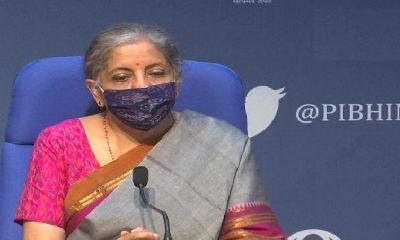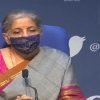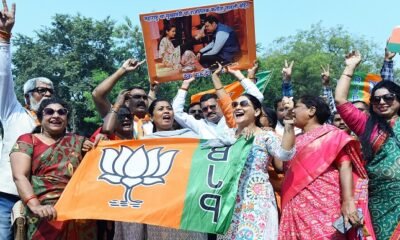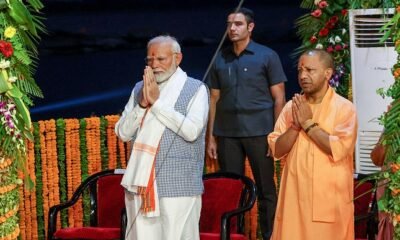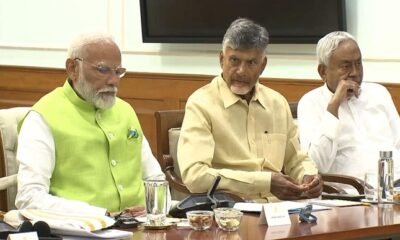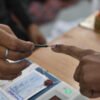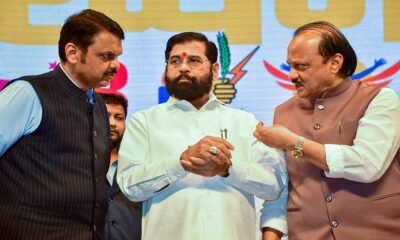National
Analysis of the Policy response to COVID-19 in India
Chetna Gupta : With the number of COVID-19 cases in India rising rapidly, the government declared a sudden 21 days lockdown beginning 24th March,20. It created panic around the country as people weren’t completely prepared for it. Also, no announcements were made regarding the essential supplies to the people by the government at that point of time which made everyone run to the shops and left the poor and the direct wage earners scared and helpless. But recognising this as the need of the hour, people coordinated. Since then, there has been a slight fall in the rate at which the virus is spreading compared to a situation if no lockdown was declared. Soon, the FM announced various fiscal and welfare policies that would be implemented by the government amidst the lockdown. The RBI Governor also came up with monetary policies that could largely benefit the distressed borrowers.
Welfare Policies:
The Government announced Rs1.70 lakh crore package under Pradhan Mantri Gareeb Kalyan Yojana which is a good amount in addition to the financial support introduced by other countries like the G-20 countries and the international organisations such as IMF and World Bank. But the package, as the scheme defines, is directed only at the poor section of the country somewhat overlooking the middleclass section. Under this scheme, each person will get 5kg rice or wheat which is a needed step but what about the procedure of supplying these? Will this be implemented in each and every household? Because according to the prior experience, such benefits are not always implemented at the ground level. The sources in charge of supplying these essentials may not be fully trusted. The government also announced direct benefits and cash transfers to the disabled, poor widows, poor pensioners, senior citizens, women beneficiaries under Jan dhan Yojana, beneficiaries under MGNREGA, Ujjwala Scheme, etc and farmers under PM-KISAN. This is again a required step but what about the people who are not registered under such schemes? There is a welfare fund of Rs31000 for construction workers which has 3.5 crore registered workers. But there are construction workers who don’t have written job contracts due to which they may not benefit from this fund. Some of the best measures are the provision of collateral free loans under National Rural Livelihood Mission and the EPF contribution by the centre. There should be immediate payment of wage arrears of the MGNREGA workers instead of raising their wages because they are not working now due to lockdown. Benefits should be declared for the immigrants who are unable to go back to their homes due to suspension in transportation services. Also, a portion of the package should be directed at the middleclass as they are the major sufferers because they have to sit at home due to disruption in retail services which mostly employs the middleclass. Thus, these measures are well thought in terms of the lockdown and the most suffered poor sections but its implementation may not reach to every citizen. Also, these measures are leading to high rush at the groceries, banks, etc which is hindering the purpose of lockdown i.e. social distancing.
Fiscal Policies:
The Government has provided a big relief to the Industrial sector through various measures such as extension of the deadlines in filling of GST and Income tax returns, cancellation of charges and penalties on delayed payments, cutting of interest rates on delayed TDS deposits, extension of Vivad se Vishwas tax dispute resolution scheme and the suspension of submitting business commencement reports and auditor’s report, IBC section 6, 7, 8 and business meetings. It has also waived off the minimum balance charges on bank accounts and has cut charges for digital transactions. Our PM has announced 1% of the GDP as fiscal stimulus to the needy citizens. Also, an economy package would be announced soon. All these measures were essential in terms of the lockdown and would benefit the owners of the Industries and the big retailers. Steps should also have been taken for the employees of these urban industries as have been taken for the rural industries through provision of the social security schemes and prevention of the entire salary cut (targeting mainly the fixed income earners). The government is also focussing on the MSMEs which is really important. Thus, these fiscal steps taken by the government will help the business sector reduce its problems and would mitigate the impact on the Indian economy.
Monetary Policies:
The RBI has taken certain steps which will help the middleclass and the business sector both during and after the lockdown. It has reduced the policy repo rate by 75 bps to 4.4%, CRR by 100 bps to 3% and has also cut Marginal Standing Facility and Long term Repo Operation to infuse liquidity in the market. Also a 3 month moratorium has been allowed by all the lending institutions for all outstanding term loans i.e. the payment of the EMIs have been suspended. The payment of credit card dues have also been suspended by 3 months. During the lockdown, it will relieve the borrowers from the pressure of completing their instalments when they are utilizing all their savings for consumption purposes. Also, the business sector could meet their shortages in cash by borrowing at low interest rates. After the lockdown, the rise in liquidity may cause inflation in the economy leading to a rise in consumer demand and at that time reduced lending rates will help the industries to fund their expenses by borrowing. Thus, such measures are of great help during this economic crisis but they might also lead to additional costs to its users in future (moratorium).
देश में कोरोना मरीजों की संख्या बढ़कर 873 हुई, अबतक 19 लोगों की मौत
Conclusion:
Our government is taking efficient measures to support its citizens during the corona virus outbreak. It’s just that the above measures might be short- lived as no one knows for how long this epidemic will continue, not even the government, during which the government will have to take more new steps in future. Thus, to make COVID-19 short-lived instead of the policies, it’s necessary for the people to coordinate with the government and stay homebound. Also, the government should increase testing and surveillance as it would lead to prompt treatment and may reduce mortality and can actually reveal the extent of the disease. COVID-19 is a national emergency and the government must introduce a health package to undertake the expenses of testing and the provision of quarantine and treatment facilities. Therefore, health policies are as important as the other policies mentioned and realising this, India has decided to join WHO’s “Solidarity trial” to conduct global search for drugs that could treat COVID-19. It is also trying to get supplies of testing kits from other countries. In this situation, not only the Central government but all the State governments should coordinate and help their people survive this epidemic so as to save our country.









